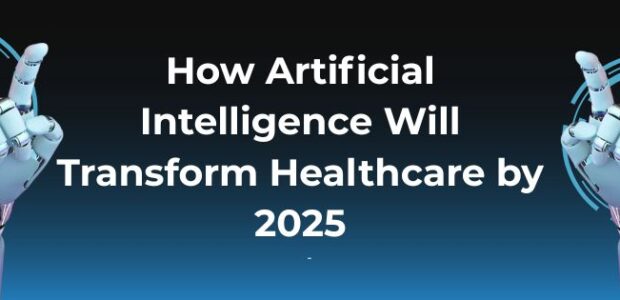How Artificial Intelligence Will Transform Healthcare by 2025
By 2025, Artificial Intelligence (AI) is set to become one of the most transformative forces in healthcare. From diagnosis and treatment to patient engagement and hospital management, AI technologies are reshaping the way healthcare is delivered—making it faster, smarter, and more personalised.
1. Smarter Diagnosis and Early Detection
AI-powered diagnostic systems are already surpassing human accuracy in detecting diseases such as cancer, diabetic retinopathy, and heart conditions. By analysing medical imaging, lab results, and patient histories, machine learning algorithms can identify patterns invisible to the human eye, enabling earlier and more precise diagnoses.
2. AI in Medical Imaging and Radiology
AI is revolutionising radiology by automating image analysis. Tools like computer vision can scan thousands of X-rays, MRIs, and CT scans in seconds, flagging anomalies for radiologists. This not only speeds up workflows but also reduces human error and improves patient outcomes.
3. Personalised Treatment Plans
Using data from genetic profiles, lifestyle information, and wearable devices, AI can help doctors design treatment plans tailored to individual patients. This shift toward personalised medicine means more effective therapies with fewer side effects, especially in areas like oncology, where each tumour’s DNA may require a unique approach.
4. Virtual Health Assistants & Chatbots
AI-driven virtual assistants are providing 24/7 support for patients—answering questions, sending medication reminders, and even offering mental health guidance. These tools reduce the burden on healthcare staff while improving patient engagement and self-care.
5. Drug Discovery and Development
AI is drastically cutting the time and cost involved in drug discovery. By analysing massive datasets, AI can identify potential compounds and predict how they will interact with the body, speeding up the R&D process. In some cases, what used to take years can now happen in months.
6. Predictive Analytics for Proactive Care
Hospitals are leveraging AI to predict patient deterioration, readmissions, or outbreaks before they happen. These insights allow providers to intervene early, allocate resources efficiently, and improve overall care quality.
7. Administrative Automation
AI is also transforming the business side of healthcare. From automating billing and claims processing to optimising staff schedules, AI reduces administrative costs and frees up more time for patient care.
8. Challenges: Ethics and Data Privacy
Despite its benefits, AI in healthcare comes with challenges. Data privacy, algorithmic bias, and ethical concerns around decision-making remain critical issues. Ensuring transparency, regulation, and human oversight is essential to building trust in AI-powered systems.
Conclusion:
By 2025, AI won’t just support healthcare—it will be central to how care is delivered. With proper safeguards and collaboration between tech developers and medical professionals, AI has the power to make healthcare more accessible, efficient, and life-saving than ever before.


